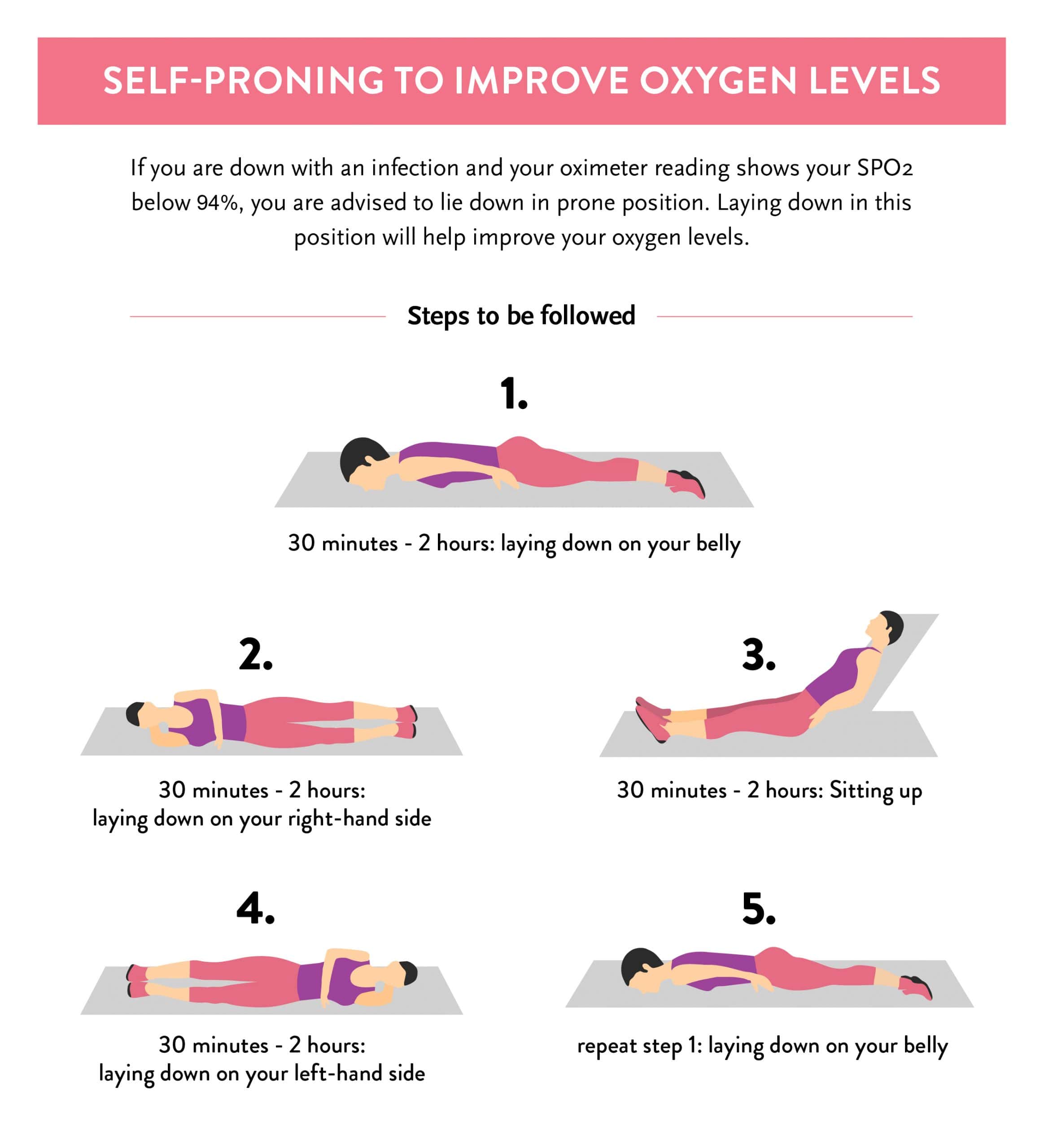
"How to strengthen lungs?" "How to improve lung health?" "Breathing exercises to strengthen lungs?" are some of the frequently asked questions to doctors. Let's discuss these topics.
You already know exercise is good for your health. Doing regular exercise makes your lungs, muscles, and heart stronger. As physical fitness improves, the body becomes more efficient at getting oxygen into the bloodstream and transporting it all over the body. It will also give you the best chance of coping with a COVID-19 infection.
“How to strengthen lungs?” “How to improve lung health?” “Breathing exercises to strengthen lungs?” are some of the frequently asked questions to doctors. Let’s discuss these topics.
Before increasing the oxygen level in the lungs, one must do exercises to clear the lungs. Doctors recommend an active cycle of breathing technique (ACBT), which is one of the best exercises to clear out the productive cough from your lungs.
Continue doing these simple ACBT exercises daily until your chest is cleared out. If you feel your cough is too much then you can do these exercises twice a day. Doctors recommend that you should clear out as much phlegm as you can without getting exhausted. So, do these exercises for at least 10 minutes in one go, but not more than 30 minutes.
While doing ACBT exercises, doctors recommend using a few body positions that will help in the clearing out of the chest.
But if you are not feeling well, or you have acid reflux, blood in your phlegm, nausea, recent injuries to the chest, spine or rib, or if you’re feeling breathless, do not try these positions. Also, avoid these positions immediately before or after having your meal.
Proning is the process in which a patient is lying from his/her back onto the abdomen (stomach). The process is beneficial in COVID-19 patients with compromised breathing comfort.
Proning is a medically accepted body posture to improve breathing comfort and oxygenation.
It improves ventilation, keeps alveolar consonants open and breathing easy. Those patients who feel difficulty in breathing and their SpO2 percentage decreases below 94 are suggested to do the proning.
Constant monitoring of SpO2 level, along with other signs like blood pressure, temperature, and blood sugar, is important during home isolation. Regular proning and having good ventilation could save many lives from COVID-19.

Other than these exercises, making a few lifestyle changes will also help strengthen the lungs.
Antioxidants protect our body cells against free radicals, which play a vital role in defending against heart disease, cancer and other diseases.
Antioxidants, like vitamins C, E and carotenoids, help in protecting cells from free radicals. Other naturally occurring antioxidants include tannins, phenols, flavonoids, and lignans. Also, plant-based foods are the best sources of antioxidants.
These include vegetables, fruits, nuts, seeds, herbs, whole grains, and spices. If you are looking for tips on how to strengthen the immune system, check the article now.
Doing exercise regularly, helps oxygen to reach each body organ and function properly. If you do aerobic activity, such as bicycling, walking, or swimming, it helps you live healthier and longer. Aerobic activities involve legs, arms, and hips muscles.
Hence, the body responds quickly and increases breathing. This will increase the amount of oxygen in the blood as the heart will beat faster, blood flow to muscles and back to the lungs increases, small blood vessels (capillaries) will open up to deliver more oxygen, and the body will even release endorphins (natural painkillers).
Keeping yourself hydrated makes a great impact on your ability to breathe well. Research has shown that dehydration affects all of the systems in the body including the respiratory system.
Doctors suggest that taking enough water helps to thin the mucus lining the airways and lungs. The recommended adequate amount of water intake for men is about 3.7 litres a day and for women is about 2.7 litres a day.
Shortness of breath is one of the common symptoms caused by the COVID-19 infection. If your oxygen level in the blood on a pulse oximeter is below 95, consult a doctor. Also, try not to follow any home remedies to increase oxygen levels. Get yourself checked and get treated.
For more information or personalised guidance, you can book an appointment with Dr Kuldeep Kumar Grover, a well-renowned pulmonologist, sleep medicine and critical care specialist at the CK Birla Hospital or call us at +91 124 4882248.
Ques: What are 4 ways to keep your respiratory system healthy?
Ans: Making some small changes in daily life is very helpful to keep your respiratory system healthy. If you are dealing with any serious illness, disease, or allergies, then consult with a doctor for proper medication. With this, try to do the following changes,
Ques: What is good for respiratory health?
Ans: We all are well aware of the importance of lungs in keeping us strong and well. Like other body parts, our lungs need daily care and attention.
Follow these tips to improve your lung health:
Ques: What best exercises for the lungs?
Ans: Despite your age, weight or athletic skill, doing aerobic activities is good for you. Doctors recommend that aerobic activities have many health benefits such as it keeps your body active, it involves almost every muscle, very helpful in keeping your lungs healthy. Aerobic activities like walking, bicycling or swimming are some of the best to keep you healthy.
Ques: How much oxygen level is good?
Ans: In normal pulse oximeter readings, oxygen level ranges from 95 to 100 percent considered as good. Values under 90 percent are considered low oxygen level in the body and will indicate the need for supplemental oxygen.
Ques: How to use a pulse oximeter correctly?
Ans: The pulse oximetry is a plastic clip-like device with a light attached to it. The oximeter helps in measuring the oxygen saturation level of arterial blood and heart rate. The correct technique to use a pulse oximeter is,
Written and Verified by:

Similar Pulmonology Blogs
Request a call back